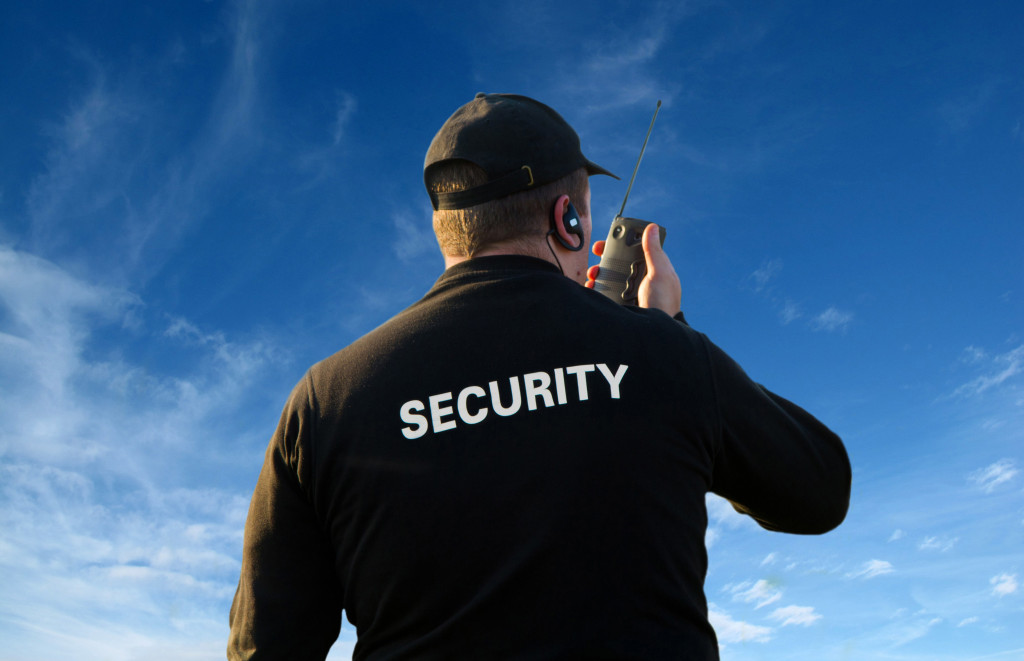• Obtain the necessary licensing and insurance before starting a security guard company to avoid issues.
• Train staff in all relevant areas, such as security protocols, emergency response, customer service, and legal knowledge.
• Equip guards with the right equipment to perform their jobs properly, such as uniforms, flashlights, radios, and guns.
• Establish SOPs for all aspects of the business and create relationships with clients by providing quality service and reliable protection.
Starting a security guard company is no easy task. It requires a thorough understanding of the industry and knowledge of its regulations, laws, and liabilities. As more and more businesses hire security guard companies to protect their premises, it is becoming increasingly important to know how to start a successful company. If you are looking to launch your own security guard business, here are some tips to help you get started.
1. Secure Licensing and Insurance
The first step towards starting a security guard company is obtaining the necessary licensing and insurance. This will vary depending on your location and what kind of services you are providing. Generally speaking, you’ll need to register with your state or local government as a security business and obtain all applicable licenses for providing services such as armed guards or bodyguards.
You’ll also need to secure adequate liability insurance to protect your business from potential legal issues or financial losses due to negligence claims or mistakes by your employees. If you’re providing services across state borders, you may also need to obtain a special license from the federal government.
2. Train Your Employees
Security guards must be trained adequately before working for your company. Training is required by law and is also essential for ensuring quality service. Creating a comprehensive training program covering everything your guards need to know is important.
Basic security protocol
When it comes to security, the basics are essential. You must train every guard on proper protocol, such as responding to alarms, patrolling premises, and responding to emergencies.
Emergency response
Your security guards must be trained to respond to emergencies and know the appropriate protocol. This includes knowing how to handle potentially dangerous situations, who to call for help, and how to de-escalate a situation.

Customer service
Security guards are also expected to provide excellent customer service. This includes developing interpersonal skills such as communication, problem-solving, and conflict resolution.
Legal knowledge
Finally, security guards must also be trained in the relevant laws and regulations. This includes knowing when they can use force, how to file reports, and their legal obligations properly.
3. Provide the Right Equipment
Of course, security guards need the right equipment to do their job effectively. This can include anything from uniforms and flashlights to radios and guns (if necessary). Guns must also have the right holders, and all equipment must be properly maintained to always be in working condition. For example, you must regularly check gun holsters for any signs of wear or damage. Many security companies invest in HK VP9 gun holsters as they are made of durable materials and provide a secure fit.
Some security companies may also opt to provide body cameras for their guards as well. Because anything can happen in a security situation, and if there is any dispute, the body camera footage can be used as evidence. Depending on the needs of your specific business, you may find that providing these items can be very beneficial.

4. Create Standard Operating Procedures
It’s essential to have clear standard operating procedures (SOPs) for all aspects of your business operations—from recruiting new staff members to responding to emergencies. SOPs provide structure for how tasks should be performed within an organization and help ensure everyone is held accountable for their actions. This makes it easier for managers and supervisors to monitor employee performance and identify areas where you can make improvements to increase efficiency and prevent any mistakes from occurring in the future.
A good security guard company must have comprehensive SOPs to succeed. For example, your SOPs should include recruitment and training criteria, how to handle emergencies, and any other relevant policies that all employees must follow. If you need help creating these policies, many resources are available online.
Starting a security guard company involves more than just hiring experienced personnel; many additional steps are involved in setting up the business. From obtaining proper licensing and insurance coverage, training employees, creating standard operating procedures (SOPs), establishing relationships with clients, and more—there is much work to be done before you can begin offering services successfully! Following these essential tips when starting a security guard company can ensure that it gets off on the right foot!


